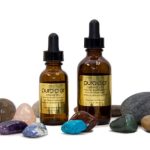Menopause Relief: Perimenopause Foods and Vitamins
According to experts, the symptoms of menopausal women can be improved by consuming large quantities of vegetables and fruits rich in isoflavones (a vegetable type of estrogen). Some isoflavones have the ability to lower cholesterol and reduce the intensity of hot flushes and night sweats. Products rich in isoflavones are those with high content of soy, such as soy milk or tofu.
Contents
Vitamins for menopause
Menopause involves the appearance of physiological changes in the body, directly expressing the lowering of female hormones. Between estrogen deficiency and osteoporosis there is a direct relationship.
1. Calcium
Calcium carbonate and calcium citrate are the best forms to take. Calcium intake should not exceed 2 g / day. Otherwise, there is a risk of developing kidney problems with severe implications.
In fact, before taking a calcium supplement it is recommended to consult a specialist. We say this because there are some diseases in which dietary supplementation with calcium is not recommended: gallstones, kidney stones.
2. Vitamin D
The essential role of vitamin D is to interfere with gastrointestinal absorption of calcium and help deposit the calcium in the bone structures. People between the ages of 51-70 years should ensure their intake of 400 IU / day, and those aged over 70 years should take 600 IU / day. However, it is not recommended to exceed 2000 IU of vitamin D / day.
3. Vitamin B12
Menopausal women lacking in certain vitamins in the diet, including B12, confront with a high risk of anemia. Women with anemia tend to consume less protein and a small amount of vitamin B9, iron, vitamin C and vitamin B12. Vitamin B12 deficiency often gives fatigue, weight loss, memory problems and even dementia or depression.
Some researchers say that vitamin B12 is a way to improve mood and concentration during menopause and premenopause period. The daily amount of vitamin B12 recommended for adults is 2.4 micrograms and can be taken from fish, meat, eggs, milk and cereals.
4. Folic acid (vitamin B9)
Although folic acid is known as an essential nutrient likely in pregnant women, it is essential for the elderly too. Folic acid protects the heart, boasting the creation of new tissues and red blood cells.
Women who consume large amounts of folic acid show a decreased risk of developing hypertension. It is recommended to consume an amount of 400 micrograms of folic acid every day.
5. Omega 3 Fatty Acids
Eating large quantities of fish and omega 3 fatty acids will lead to a lower risk of developing heart disease. Omega 3 fatty acids are healthy polyunsaturated fats that combat the growth of plates in the arteries and lower blood pressure. In addition, these fats allow raising the good cholesterol while lowering the bad one.
Studies have shown that fish oil supplements – from 1 to 4 milligrams per day – reduce triglyceride levels by 20% to 50%. Salmon, tilapia and cod are good to be consumed at least twice a week. Add in your diet some olive oil, which contains other healthy monounsaturated fatty acids.
If menopause is installed with noisy neuro-vegetative symptoms, such as hot flashes or high intensity sweating, it is recommended to avoid certain foods that can worsen the situation, such as spices, caffeine and alcohol.
Exercise regularly
Menopausal women should include in their daily routine a normal exercise program. Daily exercises have the power to reduce the intensity and frequency of hot flashes and night sweats. Moreover, exercising regularly will only help keeping your bones strong.
If you can’t practice aerobics or lift weights, you can at least walk more often in a local park or take a bike ride. During the summer season you can climb mountains in order to gain more bone density and make hot flashes less intense.




